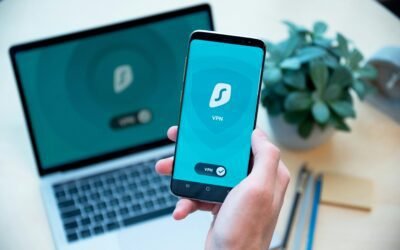Protect your online privacy whenever, wherever with VPN
Confidently browse, bank, and shop online. Protect your personal data and credit card info with McAfee Secure VPN—smart VPN that automatically turns on when you need it.
Windows® | macOS® | Android™ | iOS®
How does McAfee protect your identity?
Bank-grade encryption
Your data is protected using the same technology that banks use
Automatic protection
VPN turns on for you on unsecure networks
Browse confidently
Stay anonymous and secure from advertisers and prying eyes
Fast and easy-to-use
Connection speeds that keep up with you
Pick a perfect plan for you AND your family
How to setup Secure VPN for your Windows PC
Your VPN is available in your McAfee Windows app. Here’s how to turn it on:
Open the McAfee app on your PC
Click on the McAfee shield icon. Or search for McAfee in your desktop/device search toolbar.
Click on the “Secure VPN” tile
You can find the Secure VPN tile on the right side of your screen
Toggle “On” to activate the VPN
Click on the toggle button to turn “On” the VPN. It’s located in the “Virtual Private Network” panel.
4
Access “Settings” for more
Click on “Settings” located next to “Connection Settings” to view your VPN and protection results.
We’ve got your back
Guided, personalized online protection that makes being safe simple, wherever you are.
FAQs
These answers might help.
What is a VPN?
Much like a firewall protects the data on your computer, a VPN (Virtual Private Network) protects your activity by encrypting (or scrambling) your data when you connect to the internet from a remote or public location so you can hide your IP address and online activity.
Why do I need a VPN?
While convenient, connecting to public Wi-Fi can expose your sensitive data such as your physical location, banking account credentials and credit card information to prying eyes. McAfee Secure VPN uses AES 256-bit encryption to keep your browsing information private – encryption strong enough to even safeguard banks. Keep your online habits protected at home and on-the-go and minimize exposure of your personal data no matter how you connect online.
When should I use a VPN?
We recommend using a VPN when you’re connecting to untrusted, public Wi-Fi networks such as at airports, cafés, and hotels. Using a VPN to protect your personal data is especially important if you plan on making any purchases or financial transactions while connected. With McAfee Secure VPN, we can help turn on VPN automatically on these unsecure networks so you can browse in confidence.
Will VPN work on my device?
Our Secure VPN works on most devices and operating systems. See system requirements for detailed information about VPN availability and whether it’s right for you.
How many different VPN server locations do you offer?
You can connect to almost 50 different countries, including Australia, Brazil, Canada, Denmark, Finland, France, Germany, India, Ireland, Italy, Japan, Mexico, Netherlands, New Zealand, Norway, Romania, Singapore, Spain, Sweden, Switzerland, United Kingdom, and United States.
What is the difference between a paid and free VPN?
Free VPN products often still come at a price, ranging from bandwidth limits or ads to even malware.
Can I use Mcafee VPN on my mobile device?
Yes, McAfee VPN is compatible with Android and iOS devices. For more information, visit our system requirements.
Is it legal to use VPN?
It’s legal to use a VPN in most countries, including the U.S., however, anything that’s illegal without a VPN remains illegal when using one (e.g. torrenting copyrighted material). VPNs are banned by a few countries including China, Russia, Iraq and North Korea.
Advice from our security experts – just for you
Cybersecurity and mobile applications
In the era of smartphones and digital connectivity, mobile applications have become an integral part of our daily lives. From banking to social networking, we entrust mobile apps with sensitive information, making cybersecurity a critical consideration. In this blog,...
The vulnerabilities in wireless mobile data exchange.
The proliferation of wireless mobile data exchange has revolutionized the way we connect, communicate, and access information. However, this convenience comes with its own set of vulnerabilities, exposing users to potential security risks. In this blog, we will delve...
Ethical considerations in cybersecurity practices
In the ever-evolving realm of cybersecurity, where the battle between defenders and attackers is relentless, ethical considerations play a pivotal role in shaping the landscape. As organizations strive to protect sensitive information and individuals seek to safeguard...



